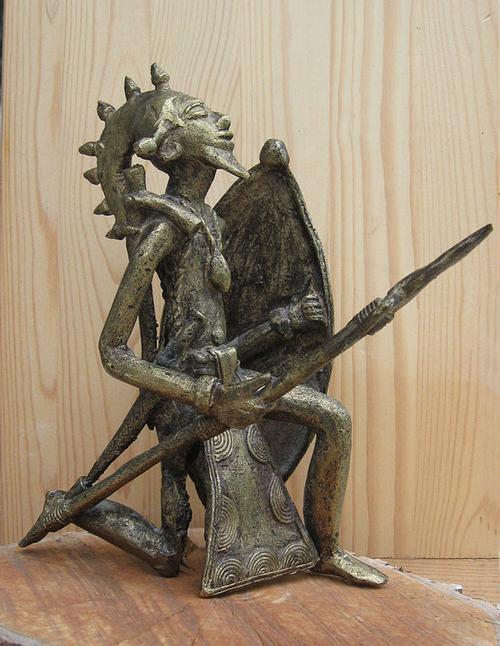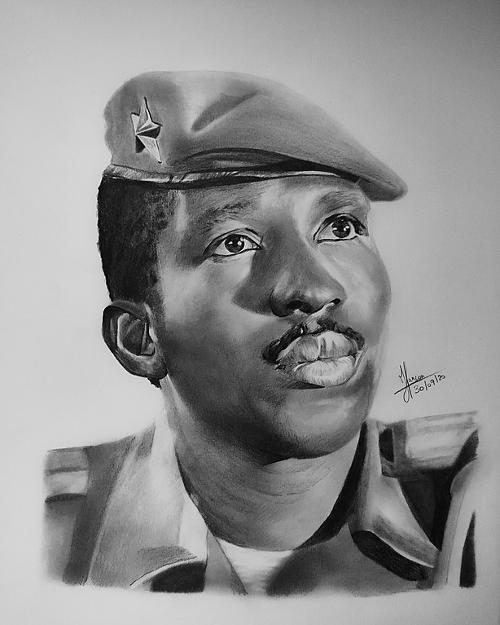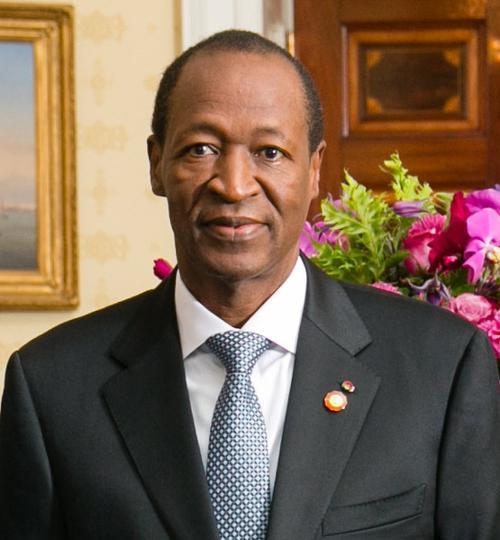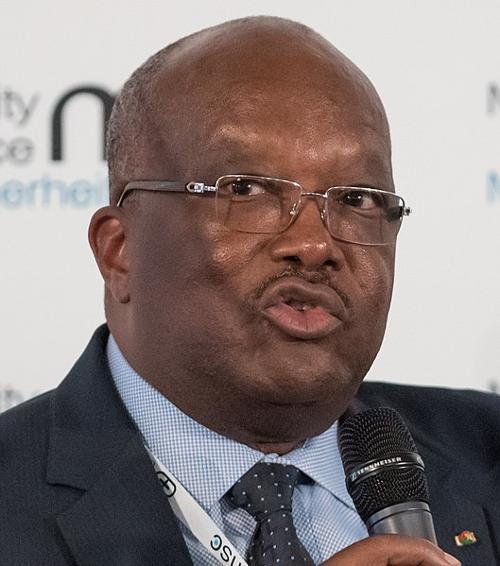BURKINA FASO
History

History
History

The history of present-day Burkina Faso goes back to the 14th century, when the Mossi, the most important tribe in the area, founded several kingdoms in the savannahs of West Africa.
The French presence in the area dates back to 1895, when the area of present-day Burkina Faso became part of French West Africa. In 1919, the Upper Volta colony was founded, consisting of parts of Niger, Ivory Coast and present-day Mali. After some border shifts, Burkina Faso (then Upper Volta) emerged in 1947 within its current borders and as part of French West and Equatorial Africa.
From 1958 until independence in 1960, Upper Volta was part of the Communauté franco-africaine, under French colonial rule, but with a degree of autonomy.
 Drawing Thomas Sankara Burkina FasoPhoto: Larrybzh CC 4.0 International no changes made
Drawing Thomas Sankara Burkina FasoPhoto: Larrybzh CC 4.0 International no changes made
On August 5, 1960, Upper Volta became an independent republic with Maurice Yaméogo as president. Economic decline, increasing corruption and growing authoritarian rule led to a coup in 1966. with the Army Chief of Staff, Lieutenant Colonel Sangoulé Lamizana, seizing power. In the period 1966-1980 the country had alternating military and civilian governments. On November 25, 1980, a coup took place by Colonel Saye Zerbo, who was overthrown in 1982 by a group of young officers who appointed Major Jean-Baptiste Oué draogo president. Young Army Captain Thomas Sankara was appointed Prime Minister in 1983.
After a period of internal conflict on August 4, 1983, a group of young, radical soldiers seized power. The country was governed by the Marxist-Leninist-oriented Conseil National de la Révolution (CNR), led by Sankara and with officers Blaise Compaoré and Henri Zongo and Jean Baptiste Boukary Lingani as its main members.
On August 2, 1984, Boven Volta was renamed Burkina Faso, “the land of the people of integrity”. Sankara's strict measures and charismatic personality initially made him popular but later provoked resistance. In 1987 a violent coup took place under the direction of Blaise Compaoré. In addition, the then president Sankara was killed. Until 1990 there was dictatorial rule under Compaoré. Zongo and Lingani were sentenced to death on charges of treason. From 1990 Compaoré's policy began to relax. In June 1991, in a national referendum with 93% in favor, a new constitution was passed, providing for a multiparty system.
 Campaore Burkina FasoPhoto: Amanda Lucidon / White House in the public domain
Campaore Burkina FasoPhoto: Amanda Lucidon / White House in the public domain
In the December 1991 presidential election, boycotted by the opposition, Compaoré was elected president. In the general election of May 1992, Compaoré's party, the Organization pour la Démocratieoners-Mouvement du Travail (ODP-MT), won an absolute majority of 78 (then 107) seats. In 1996 several parties were merged with the ODP-MT into a new party: Congrès pour la Démocratie et le Progrès (CDP). In the May 1997 elections, it won 101 of the 111 seats in parliament. This created a de facto one-party state, albeit on formally democratic grounds. In the fall of 1998, Compaoré was re-elected president for a second term of 7 years and in November 2005 for a third term of five years. In May 2007, the CDP wins the parliamentary election. In April 2008, Parliament passed a law requiring at least 30% of political party candidates to be women. In 2011 Compaoré won the elections again and in July 2013 there were riots. The opposition thinks that Compaoré sees reason in this to extend his term. Demonstrations against extending the president's term are also taking place in 2014.
 President Kabore Burkina FasoPhoto: Koch / MSC CC 3.0 Germany no changes made
President Kabore Burkina FasoPhoto: Koch / MSC CC 3.0 Germany no changes made
In November 2015, former Prime Minister Kabore wins the presidential election. In January 2016, Islamic terrorists attacked a hotel and café in Ouagadougou, killing 29, including many foreigners. In 2017 it remains unstable, in February Burkina Faso will form an anti-terrorist unit together with four other Sahel countries. In August, another 18 people were killed in an attack on a Turkish restaurant in Ougadougou. In November 2020, President Kabore will be re-elected despite the fact that many polling stations in the north of the country remained closed for fear of Jihadite attacks.
Sources
Elmar Landeninformatie
CIA - World Factbook
BBC - Country Profiles
Copyright: Team The World of Info